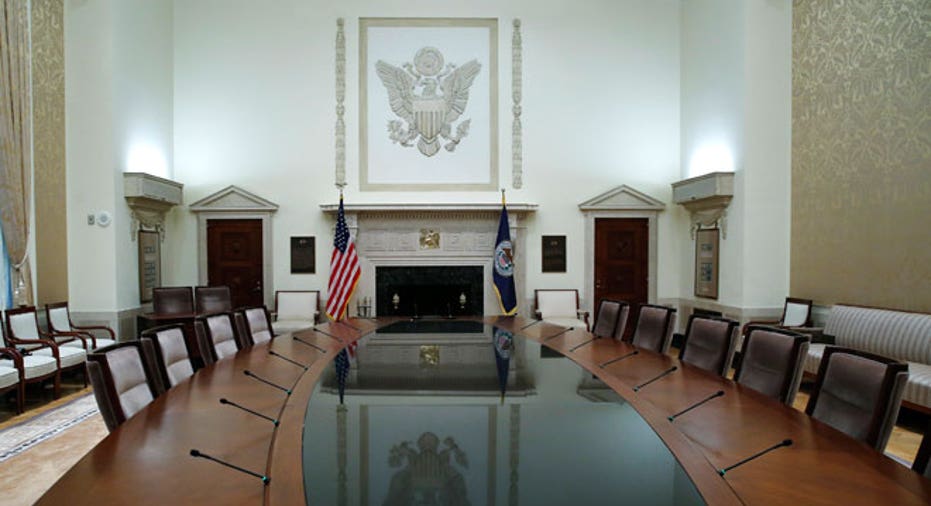Fed Continues $10B Taper; Downplays Falling Unemployment Rate

The Federal Reserve said Wednesday inflation has ‘moved somewhat closer’ to its long-term target, but noted slack in the U.S. labor market. As such, the central bank cut its bond purchases to $25 billion a month from $35 billion, as expected. It also reaffirmed its plans to keep rates at historic lows until the economy improves further.
The central bank’s policy-making committee sees the risks to the outlook for economic activity and the labor market as nearly balanced and judges that the likelihood of inflation running persistently below 2% has diminished somewhat.
In the minutes of its June meeting, the Fed indicated it could conclude its bond-buying program in October as long as economic activity continues at its current pace.
The committee said that beginning next month, it will buy mortgage-backed securities at a pace of $10 billion a month and longer-term Treasury securities at a pace of $15 billion per month – a reduction of $5 billion for each class of asset.
At its June meeting, the Fed lowered its forecasts for economic growth this year, downgrading it from between 2.8% and 3% to 2.1% and 2.3. It revised its outlook because of negative first quarter growth caused in part by severe weather.
The latest forecast also indicated that most Federal Reserve members expect to start raising the short-term federal funds rate sometime next year. The Fed has kept it at near-zero since 2008 to help stimulate the economy after the financial crisis. Yet in Wednesday's statement, the Federal Open Market Committee failed to provide additional details on when it may begin to raise short-term interest rates, repeating previous guidance “that it likely will be appropriate to maintain the current target range for the federal funds rate for a considerable time after the asset purchase program ends.”
In a press conference after the June meeting, Fed chair Janet Yellen also said that the FOMC had “not yet reached conclusions" on, and was still debating, the strategy it plans to implement to unwind its historic, multi-trillion-dollar intervention in bond markets known as "quantitative easing." The bond purchases increased its holdings to more than $4 trillion.
During her June press conference, Federal Reserve Chair Janet Yellen said “… there is uncertainty about monetary policy. The appropriate path of policy, the timing in pace of interest rate increases, ought to and I believe will respond to unfolding economic developments.”
All committee members voted for the policy decision, except for Philadelphia Federal Reserve Bank President Charles Plosser who "objected to the guidance indicating that it likely will be appropriate to maintain the current target range for the federal funds rate for 'a considerable time after the asset purchase program ends,' because such language is time dependent and does not reflect the considerable economic progress that has been made toward the committee's goals."



















